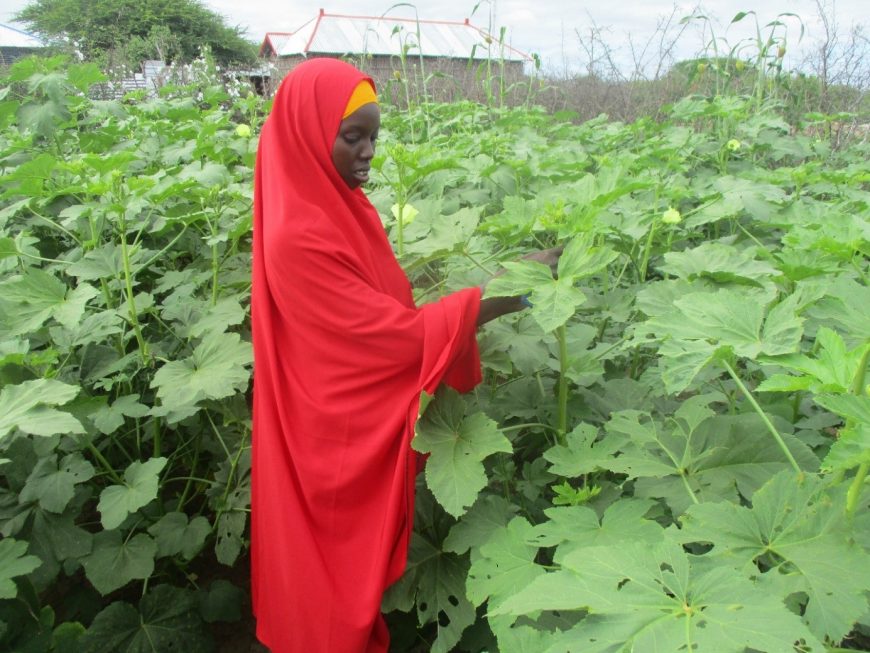Communities in the Buurhakaba district have been affected by regular drought periods for several years, causing the loss of all their assets including livestock and crops. To support them, ACTED teams conducted rehabilitation activities and trained communities on livelihood diversification and improved productivity at community level.
Responding to an intricate crisis
Somalia remains in a chronically sensitive context, thus repeatedly facing cycles of political, economic, social and environmental disasters, along with famine, drought, climate fluctuations and civil unrest. Somali households and communities are living with looming threats of climate shocks and food insecurity, making them vulnerable.
In order to alleviate the recurrent humanitarian crisis, ACTED carried out activities directly involving local people to contribute to the improvement of their living conditions, but also provide them with a stable source of income for a period of eight months. In the same spirit, ACTED trained women on various farming techniques which would also prove useful during the dry season. By doing so, women will gain independence and security, especially since they can also sell their products on the markets.
Supporting local activity for durable, improved living conditions
With the training and support received from ACTED/PASOS, the different communities have not only increased their agricultural yields, but also marketed the extra and expanded their earnings.
The assistance we have received has been a turning point for our family, it helped us shift from having no access to basic needs, no source of income, to a level where I could sustain both myself and my children. (…) Our family depended on the firewood collected to feed our families, or during the extremely difficult days we worked as house-maids for others within the area. This however, immediately ended the first month we received cash inputs from ACTED.
Some of the farming groups managed to generate enough profit to guarantee a stable and sufficient wage for their families, which now covers their basic needs. Generally, all the women who participated in the training have made real benefits of their active participation in the programme. These farming techniques have empowered several families to boost both production and income, which led to better dietary diversity and nutrition.
Khadija Mohamed has never been to school and doesn’t know how to read and write. As the eldest girl in a family of 7, she never had the chance to go to school and spent her childhood helping at home, until the age of 15 when she got married. Today Khadija is a 33-year-old mother of five and she has the opportunity to be one of ACTED’s beneficiaries, in the course of ACTED’s “South West State drought recovery” project.
As someone who has never been to school, I see the program as a great opportunity for me to learn and to pass on to others what we have learned. (…) The program goes far beyond women participants, other women and members of the community benefit from it too because they can ask us what we do to have all these vegetable and other crops (…). This makes me happy because now I teach and I am able to help others too.
